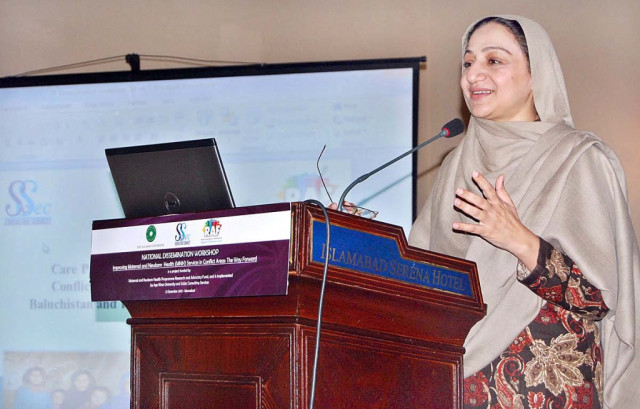Seminar: End impunity for violence against women: activists
Speakers highlight the need to implement the existing laws

Seminar: End impunity for violence against women: activists
They were speaking at a seminar on “Combating Violence: Ending Impunity” organised by the National Commission on the Status of Women (NCSW) on Tuesday.
Human Rights Commission of Pakistan (HRCP) Director IA Rehman said that we needed to locate violence against women in the context of violence in Pakistan. He pointed to increased violence against women stating that out of 839 reported cases, 75 per cent of girls were killed on the name of “men’s” honor.
Senator Afrasiab Khattak said that Pakistan should follow the lead of Afghanistan and include women in jirgas. Awami National Party Vice-President Bushra Gohar said jirga should be a consultative forum and should not have judicial power as it does not tackle women issues fairly. She said that women do not have representation in the political system in Khyber-Pakhtunkhwa.

A documentary screened at the session showed that only 11 per cent of married women owned a house in Pakistan.
45 per cent of acid attack victims cannot register cases because of social and political barriers. 79.4 per cent of violence is in the name of intimate partner” said Ms Samar Minallah Khan, Anthropologist and Documentary Filmmaker in her documentary on the Embedded Biases in Culture.
Special Assistant to the PM on Parliamentary Affairs Barrister Zafarullah Khan said that legal aid for the protection of women’s right as well as national women’s empowerment package is in the process of approval from the prime minister.
Lawyers for Human Rights and Legal Aid (LHRLA) President Zia Awan emphasised free legal aid for women and regretted the expenses incurred in court cases.
Minister of State for National Health Services, Regulation and Coordination (NHSRC) Saira Afzal Tarar, who is also an NCSW member, said women were reluctant to go to courts for their rights because of social taboos.
Minister of State of Information Technology and Telecommunication Anusha Rahman said that technology driven crime ranged from pornography, especially child pornography, identity theft (especially for financial gain), hacking, and spyware with intent to harm, to violence against women and girls.
“The challenge of technology-driven violence against women pertains to virtual crime as well as real life crime and there is a need to fight such crimes through policing and judicial process. Women should be careful about sharing their details on the social media,” she said.
The participants also passed a resolution against the Peshawar school massacre.
Published in The Express Tribune, December 17th, 2014.

1724319076-0/Untitled-design-(5)1724319076-0-208x130.webp)

















COMMENTS
Comments are moderated and generally will be posted if they are on-topic and not abusive.
For more information, please see our Comments FAQ